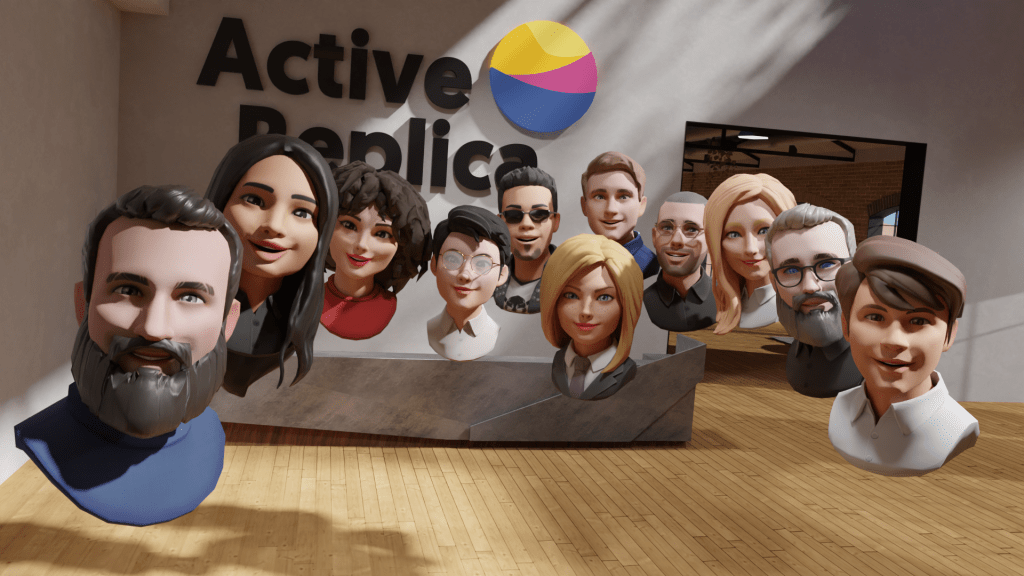An automated status updater for Slack isn’t the only thing Mozilla acquired this week. On Wednesday, the company announced that it snatched up Active Replica, a Vancouver-based startup developing a “web-based metaverse.”
According to Mozilla SVP Imo Udom, Active Replica will support Mozilla’s ongoing work with Hubs, the latter’s VR chatroom service and open source project. Specifically, he sees the Active Replica team working on personalized subscription tiers, improving the onboarding experience and introducing new interaction capabilities in Hubs.
“Together, we see this as a key opportunity to bring even more innovation and creativity to Hubs than we could alone,” Udom said in a blog post. “We will benefit from their unique experience and ability to create amazing experiences that help organizations use virtual spaces to drive impact. They will benefit from our scale, our talent, and our ability to help bring their innovations to the market faster.”
Active Replica was founded in 2020 by Jacob Ervin and Valerian Denis. Ervin is a software engineer by trade, having held roles at AR/VR startups Metaio, Liminal AR and Occipital. Denis has a history in project management — he worked for VR firms including BackLight, which specializes in location-based and immersive VR experiences for brands.
With Active Replica, Ervin and Denis sought to build a platform for virtual events and meetings built on top of Mozilla’s Hubs project. Active Replica sold virtual event packages that included venue design, event planning, live entertainment and tech support.
Prior to the acquisition, Active Replica hadn’t publicly announced outside funding. Ervin and Denis have assumed new jobs at Mozilla within the past several weeks, now working as senior engineering manager and product lead, respectively.
“Mozilla has long advocated for a healthier internet and has been an inspiration to us in its dedication and contributions to the open web. By joining forces with the Mozilla Hubs team, we’re able to further expand on our mission and inspire a new generation of creators, connectors, and builders,” Ervin and Denis said in a statement. “Active Replica will continue to work with our existing customers, partners and community.”
Mozilla launched Hubs in 2018, which it pitched at the time as an “experiment” in “immersive social experiences.” Hubs provides the dev tools and infrastructure necessary to allow users to visit a portal through any browser and collaborate with others in a VR environment. Adhering to web standards, Hubs supports all the usual headsets and goggles (e.g. Oculus Rift, HTC Vive) while remaining open to those without specialized VR hardware on desktops and smartphones.
Hubs recently expanded with the launch of a $20-per-month service that did away with the previously free service, but introduced account management tools, privacy and security features. According to Mozilla, the plan is to roll out additional tiers and reintroduce a free version in the future, along with kits to create custom spaces, avatar and identity options and integrations with existing collaboration tools.
Mozilla’s forays into the metaverse have been met with mixed results. While Hubs is alive and kicking as evidenced by the Active Replica acquisition, Meta shuttered Firefox Reality, its attempt to create a full-featured browser for AR and VR headsets, in February 2022. In explaining why it decided to close up Firefox Reality, Mozilla said that while it does help develop new technologies, like WebVR and WebAR, it doesn’t always continue to host and incubate those technologies long-term.































Comment